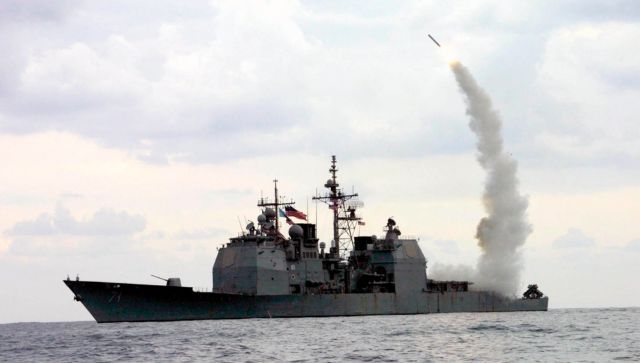In an annual defence paper released Friday, Japan has expressed concern over China’s assertiveness in the region, its growing military ties to Russia and its claims on Taiwan. According to the 510-page report, China, Russia and North Korea contribute to “the most severe and complex security environment since the end of World War II,”. The report says that China’s external stance and military activities have become a “serious concern for Japan and the international community and present an unprecedented and the greatest strategic challenge." According to the 2023 edition of Japan’s defence white paper approved by Prime Minister Fumio Kishida’s Cabinet, the current security environment is the worst since the end of World War II. It is the first under the National Security Strategy the government adopted in December, stating the need to bolster strike capability with long-range missiles like Tomahawks, a controversial plan seen as a break from Japan’s self-defence-only postwar principle. The report highlights the deepening strategic ties between Russia and China, pointing to joint bomber flights and joint navigations of warships as demonstrations of force against Japan and the region. Notably, the report identifies at least five joint bomber flights conducted by China and Russia since 2019, including one in November of the previous year. Moreover, the report predicts that China may possess 1,500 nuclear warheads by 2035, signalling an increasing military advantage over Taiwan. This situation heightens regional tensions and poses a security threat, especially to Japan’s southwestern islands, including Okinawa, where residents fear a repeat of the tragic Battle of Okinawa, should a Taiwan emergency arise. According to the report, China, Russia, and North Korea collectively contribute to creating the most severe and complex security environment Japan has faced since World War II. China’s external stance and military activities, in particular, have become a grave concern for Japan and the international community, posing an unprecedented and significant strategic challenge. Many residents there have bitter memories of the Battle of Okinawa, in which Japan’s wartime military essentially sacrificed the local population in an attempt to delay a U.S. landing on the main Japanese islands. Many Okinawans worry they would be the first to suffer again, in the event of a Taiwan emergency. While Okinawan Gov. Denny Tamaki has called for U.S. bases there to be reduced and for greater effort in diplomacy and dialogue with Beijing, the central government has been reinforcing the defences of the remote southwestern islands, including Ishigaki and Yonaguni, where new bases for missile defence have been installed. Earlier this week, Chief Cabinet Secretary Hirokazu Matsuno visited Ishigaki and acknowledged the challenges of evacuating residents from remote islands, and pledged to give firm support. Ishigaki Mayor Yoshitaka Nakayama asked for airport and port facilities to be reinforced and for underground shelters to be built for residents in case of a Taiwan emergency. China claims self-governing Taiwan as its own territory, to be annexed by force if necessary. Chinese President Xi Jinping, who in 2017 set a goal of building a “world-class military” by the mid-21st century, may move the target forward, the report said, noting his call for a rapid advancement of the People’s Liberation Army to world-class in his speech at the Communist Party congress in October. North Korea is rapidly progressing in its nuclear and missile development and poses a graver, more imminent threat to Japan than ever before,” the report said. The North has test-fired around 100 missiles since the start of 2022, including ICBMs, and the report noted the country is now believed to have the ability to conduct nuclear attacks on Japan and the continental United States. The report comes seven months after Kishida’s government adopted new national security and defence strategies that stated a decision to bolster Japan’s military capability and double the defence budget by 2027 to 43 trillion yen ($310 billion). Questions have been raised about whether the ambitious expansion of military capability and funding for it is feasible in a country that has a rapidly ageing and shrinking population. A government-commissioned panel recently adopted a package of measures, including scholarships, extension of retirement age, hiring retirees, improving workplace environments and tackling harassment. With inputs from AP.
Japan raises alarm over China’s growing military ties with Russia & its claims on Taiwan in new defence paper
FP Staff
• July 28, 2023, 10:32:10 IST
The current security environment is the worst since the end of World War II, according to the 2023 edition of Japan’s defence white paper approved by Prime Minister Fumio Kishida’s Cabinet.
Advertisement
)
End of Article